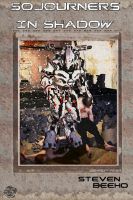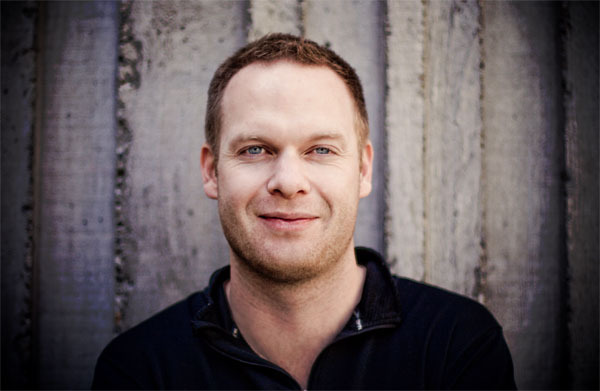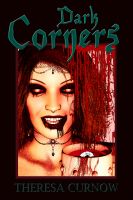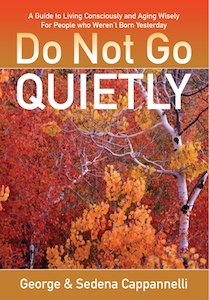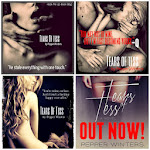Writers constantly have rules thrown at them left, right, and center. Show, don’t tell! Stop using so many dialogue tags! More sensory detail! More tension! Speed up the pace! Yada yada yada ... it can become overwhelming, yes? I used to feel overwhelmed by it all too. In fact, I still do sometimes. It’s hard enough to get the words on the page, let alone consider how to put them there.
My own struggles have led me to write this series of pocket-sized writing guides. So you can learn to hone your craft in bite-sized, manageable pieces. But please keep in mind, their purpose is to inspire you to become better at your craft. To teach you how to grow as a writer. They will not tell you how to write. They will not preach writing rules and styles to you. But they will help you realize that you can, little by little, end up with a work of fiction as unique as your own soul (whether you regard your soul as a spiritual entity, or nobility of temperament, in this context it is one and the same).
I like to think of a writer’s “voice” as the soul of their imagination. If you stay true to your soul, you will produce unique fiction. There is no doubt about it. Because everyone has his or her own soul. No other soul in this world will ever possess the exact same qualities as yours. So when you are seeking writing advice, always take into account that the advice is coming from writers with their own unique souls, too. Be inspired by them. Feel motivated. But do not feel the need to be like them. Trying to write like somebody else is (bar writing exercises), in my opinion, the biggest disservice you can do for your work.
In the first book of the Writing in a Nutshell Series, I focused on demonstrating how to transition “telling” into “showing.” In this book, I deal with another of the most common criticisms aspiring writers face: to absolutely avoid adverbs and clichés like the plague. But see, right now, I just used one of each. And at the beginning of the Introduction, I used a few too. Because they come naturally, and we frequently utilize them in everyday speech. But in fiction, too many adverbs and clichés weaken your prose. It’s considered “lazy writing,” because it means we don’t have to show what’s happening.
If your manuscript has too many adverbs and clichés, it most likely means that the emotion you felt while writing it is not going to translate to the reader in the same way. Never underestimate the weakness of adverbs and clichés. You’d be surprised how vivid your writing will become once they are subverted.
Sure, clichés exist because they stem from things many of us experience in real life, and you may argue that they are “relatable,” so why not use them? But the way in which one experiences things isn’t always the same. As writers, it’s your duty to make readers experience your story from a unique point of view. Your point of view.
Before we go into details about how adverbs and clichés weaken prose, and how you can subvert them, first you need to understand that they aren’t always going to be a problem. In fact, you don’t need to go overboard trying to eliminate every single adverb and cliché in your manuscript. Because sometimes, they just work. They serve a purpose. Especially in dialogue. Of course, it also depends a lot on your character’s voice.
For example, sometimes it’s more concise to write, “She lightly knocked on the door.” Not every single action needs to be poetic and unique. Sometimes you need to write exactly what someone is doing because it’s not important enough to draw attention to. Also, if we just wrote, “She knocked on the door,” we’d have no idea whether it was loud or not. And if this action wasn’t all that significant, it would be a bit too wordy to say something like, “She knocked on the door as if her hand were as light as a feather.” (Look, cliché again, they creep in so easily, don’t they?)
But consider this: What if this person’s light knocking on the door was paramount to the story? What if it was a moment of suspense? What if behind that door was a man this person was afraid of? What if this person was anticipating being verbally abused for the interruption? Then this ‘lightly knocking on the door’ would have a significant purpose, yes?
The action of lightly knocking on that door is no longer a simple transitional action that moves the character from A to B. It is in your manuscript for a reason. You put it there for your readers to feel the same apprehension your character feels. And no adverb or cliché, as you can see, is going to draw attention to that moment of intensity like something crafted for it exclusively.
So let’s try our hand at making this moment pop. How about, “She tapped on the door. It echoed in her ears like an axe to a carcass.”
So how does this better convey its intended sentiment? I’d say the fact that this person perceives their tap on the door as a deep, echoing, and unpleasant sound means that they are anxious about the reaction it is going to elicit. Also note that I’ve chosen the verb (tap) which means “a light knock,” so there is no reason for me to use the adverb “lightly.”
So how exactly can we approach the subversion of adverbs and clichés? For starters, play around with similes and metaphors when you’re trying to convey emotion, and for action, use strong verbs to show it happening in real time. For example, instead of using something clichéd like “the streets were so quiet you could hear a pin drop,” find a small detail to zoom in on that shows how quiet the streets are. Put a lonely-looking man kicking rubbish down an abandoned street, perhaps. Have him drag his feet. Perhaps the sound can be heard from two blocks away where your narrator is waiting for a bus that never arrives.
Most of the time, if you think of the small details, rather than the bigger picture, you’ll avoid adverbs and clichés naturally. And remember to be experimental. You never know what you might come up with.
By analyzing the thirty-four subversions of adverbs and clichés in this book, I hope you will be inspired to transform the mundane and overused expressions in your work into gourmet imagery. I suggest you read each set of examples four times. The first time, in its entirety, to grasp the general feel of the examples. Notice how flat the examples using the adverbs and clichés sound compared to the unique examples. The second time around, try to identify which elements in the unique examples match the basic sentiments of the adverbs and clichés presented in the other examples. The third time, identify how the unique example conveys, and/or adds to, those sentiments. And the fourth, brainstorm your own way of subverting the examples that use the adverbs and clichés. Remember, do not try to write like me. Just be yourself. Close the book. Close your eyes. Immerse yourself in the situation.
I have left plenty of space throughout the book for you to try your hand at your own unique examples. I’ve also provided a few short writing prompts at the very end. Please don’t feel ashamed to write in this book. It’s what it’s made for.
Happy subverting!
Adverbs:
loudly
relentlessly
slowly
Clichés:
scream like a hyena
snail’s pace
splitting headache
traffic jam
Using adverbs:
I slowly move through the chaotic traffic, my daughter screaming loudly in the back seat. My head is throbbing relentlessly. It feels like it’s going to crack open.
Using clichés:
My daughter and I are stuck in a traffic jam, and it’s giving me a splitting headache. The cars are moving at a snail’s pace, and my daughter is screaming like a hyena.
Unique example:
The sharp shrill of car horns and my daughter’s wails pierce through my head like ice picks, doing nothing to help lessen my grip on the steering wheel, while we inch along in grueling traffic.
Adverb:
habitually
Cliché:
old habits die hard
Using adverb:
Buy Now @ Amazon
Genre – NonFiction
Rating – G
More details about the author & the book


